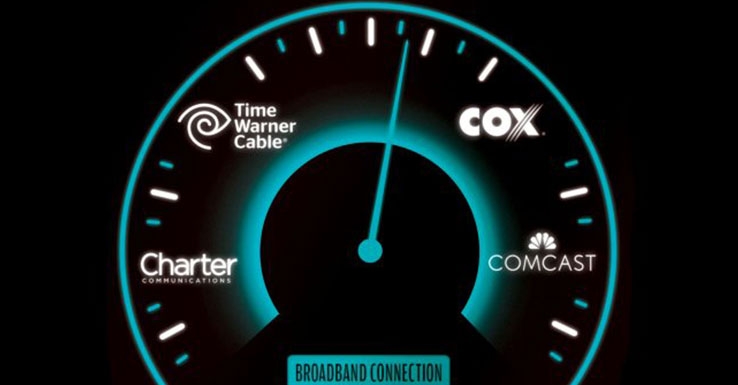With so much attention being lavished on whether U.S. regulators will allow Comcast to buy Time Warner Cable, few at the just-concluded Cable Show in Los Angeles focused on a comment by Pat Esser, president of Cox Communications, the country's third-largest cable provider. Esser said Cox soon would leap ahead of rivals -- including Comcast -- by offering much faster broadband speeds to its more than 4 million residential customers as early as the end of 2014. "This is a pioneering moment for us," he said.
It could be for the whole industry. Typical broadband speeds for cable customers now average around 50 megabits a second. Cox has invested $15 billion in the past decade and now is able to offer the equivalent of 1,000 megabits, says Len Barlik, executive vp product development and management at Cox.
With the cost of video content rising and profit margins falling, Cox and other cable operators are counting on broadband to ensure long-term viability. That means faster speeds. Cox's success in leapfrogging rivals could be the only way to compete with a Comcast-Time Warner behemoth that would control more than 40 percent of the broadband market.
"They are going to have to increase their speeds at the top-end fairly significantly or else they aren't going to keep ahead of the competitive threats," says SNL Kagan analyst Ian Olgeirson.
The cable industry in general is deep into a 10-year plan to develop higher broadband speeds through CableLabs, a consortium based in Denver that has developed a next-generation system utilizing existing fiber optic and analog "pipes" called DOCSIS 3.1. During the Cable Show, CableLabs revealed a new, friendlier name for the project: "Gigasphere," which could roll out in late 2015 or 2016.
But Cox isn't waiting that long. It already offers higher speeds to commercial customers and soon will become the first cable company to provide mega-speeds to consumers. "They've made a big bet on high-speed data and have gotten more aggressive than their like-sized peers in innovating," adds Olgeirson.
Cox has a history of reinvention. In 1996, the privately owned Atlanta-based company became the first in cable to offer home-phone service. As a result, it has more telecom customers, on average, than rival cable firms.
"The advantage the cable operators have in [using existing resources] grows exponentially over the coming years unless there is a real investment by the telecoms," analyst Craig Moffett said during the Cable Show. "Even with announcements by Google, AT&T and other telecoms, I'm skeptical they can catch up in most of the country."
Comments like that are music to Esser's ears, he says. "We always have to stay one step ahead of what our customers are asking us for."




